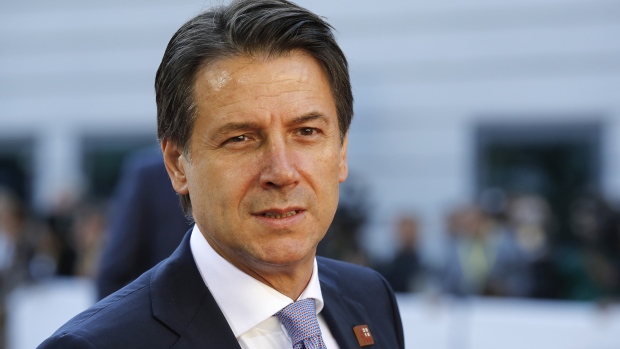Dec 12, 2018
Italy to propose new fiscal targets to European Union Wednesday
, Bloomberg News

Italy’s populist government is ready to present new fiscal targets to the European Union, a sign that weeks of clashes between Rome and Brussels over the country’s spending plans could be nearing an end.
Italian Prime Minister Giuseppe Conte will present the new numbers to EU Commission President Jean-Claude Juncker in Brussels on Wednesday evening, according to a spokesperson for Conte’s office. The new targets were discussed at a meeting between the premier and the key ministers working on the budget.
The mood among the ministers is “positive” and Conte will present “good arguments” to Juncker to try to find an agreement over Italy’s budget plans, the official said. He did not indicate what the new targets will be.
The ruling coalition of the rightist League and the anti-establishment Five Star Movement has been locked in a tussle with Brussels over its proposed budget deficit level of 2.4 per cent for next year, which was rejected by the European Commission. Recent press reports say the revised deficit number proposed by the populists could be anywhere between 2 per cent and 2.2 per cent.
While the EU has insisted it will sanction Italy if its budget doesn’t comply with its spending rules, the party’s leaders have said in recent days they are not ready to compromise on key electoral pledges including a pension law reform and an income for the poor. A budget deficit of 2 per cent may still not be enough to avoid EU sanctions.
French Spending
Italy’s Conte might find new ammunition during the EU talks in France’s social unrest. Promises by French President Emmanuel Macron unveiled Monday night which could lead France to increase its spending, could give Conte leverage to pressure Brussels into allowing Italy more leeway.
Deputy Prime Ministers Matteo Salvini and Luigi Di Maio both expressed solidarity with France’s grassroots demonstrators, and pledged to prevent any social unrest in Italy by delivering on what they promised.
EU Economics Commissioner Pierre Moscovici said in an interview with Le Parisien, that comparison of France’s budget situation with Italy’s is “erroneous” because Italy’s high debt levels have been under surveillance for years.